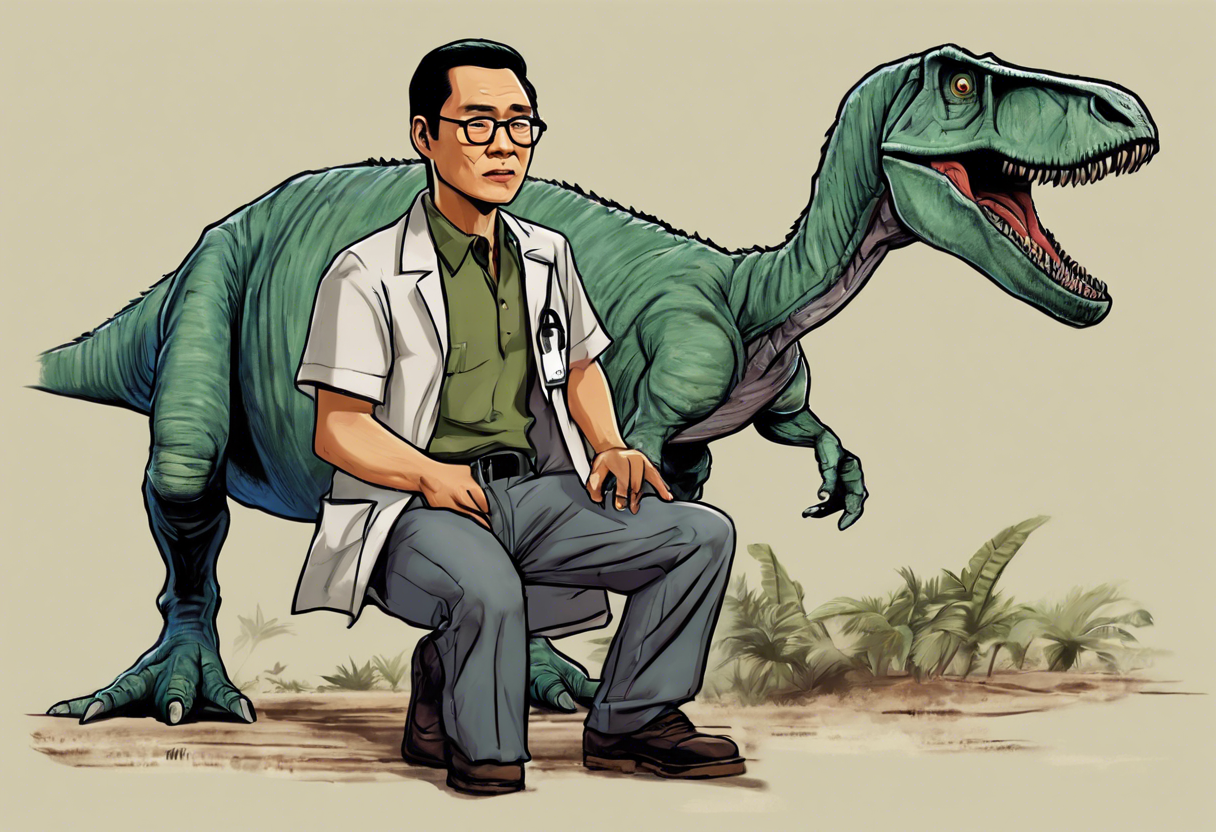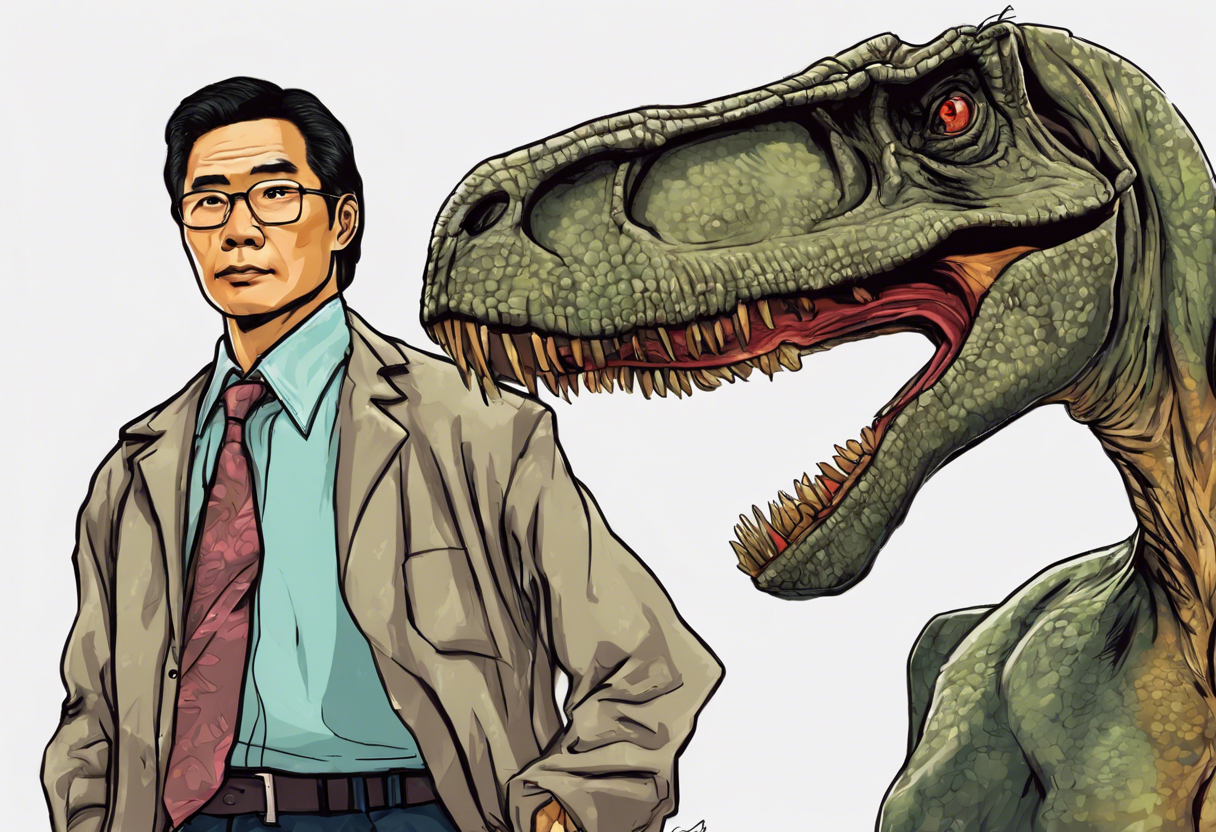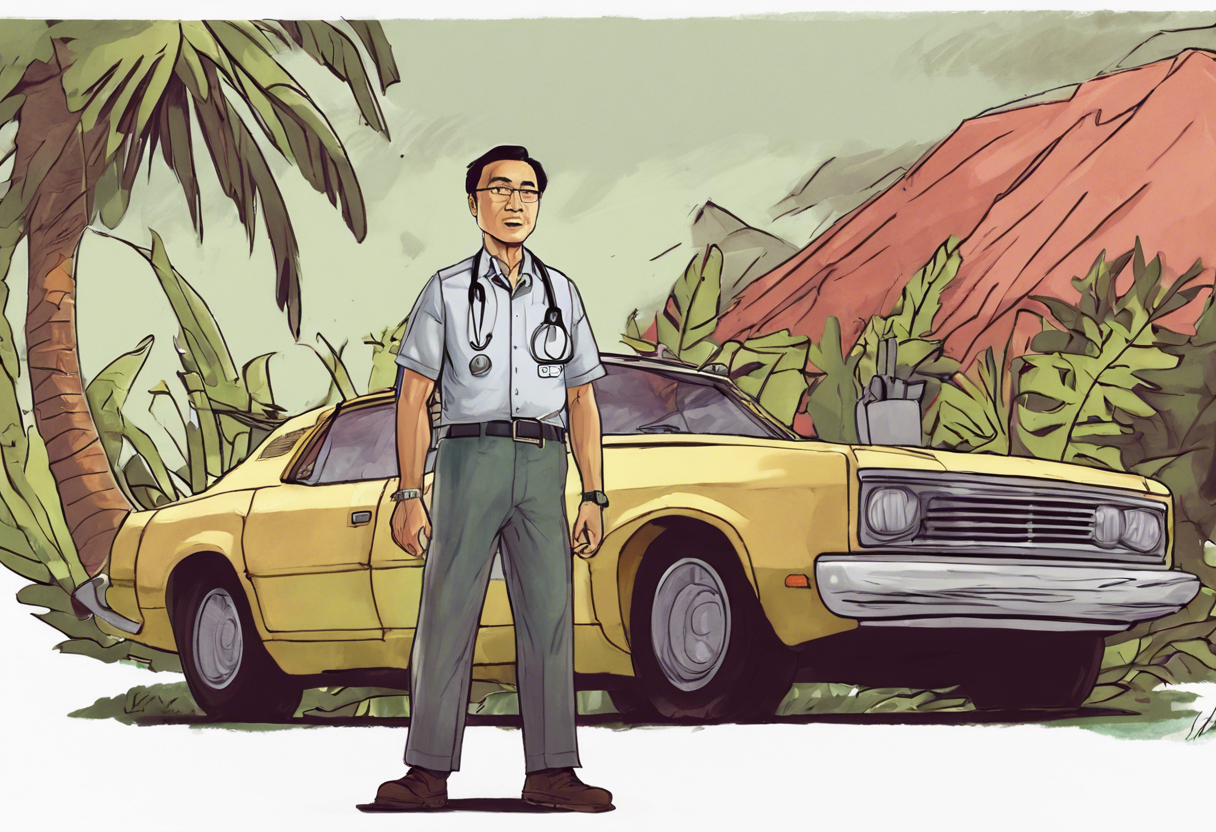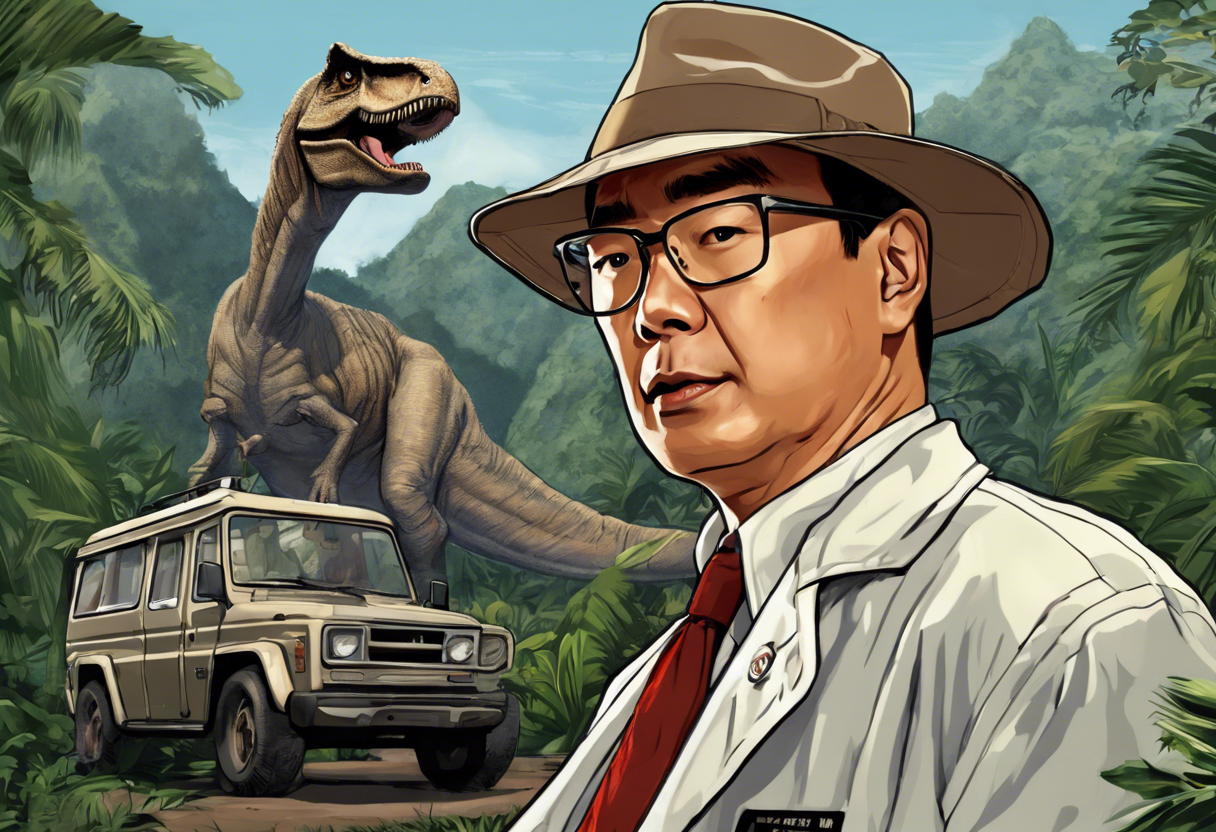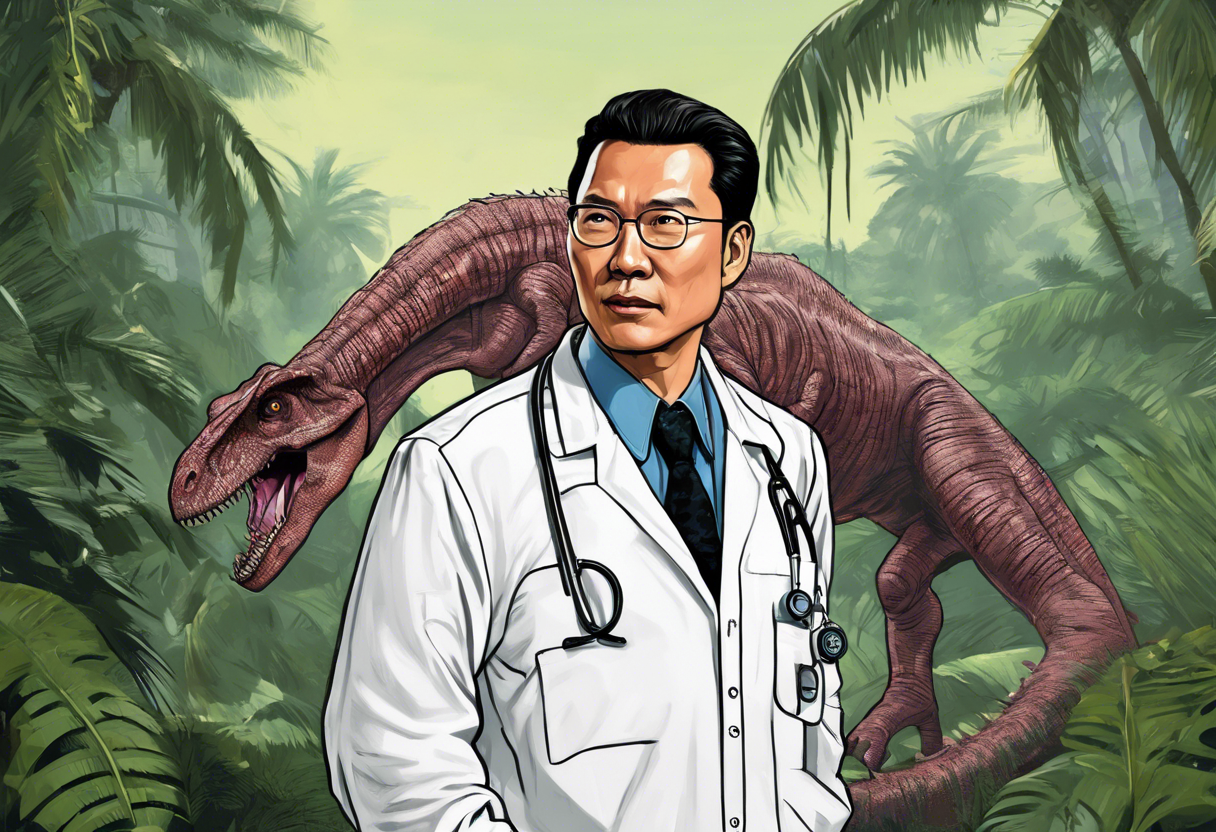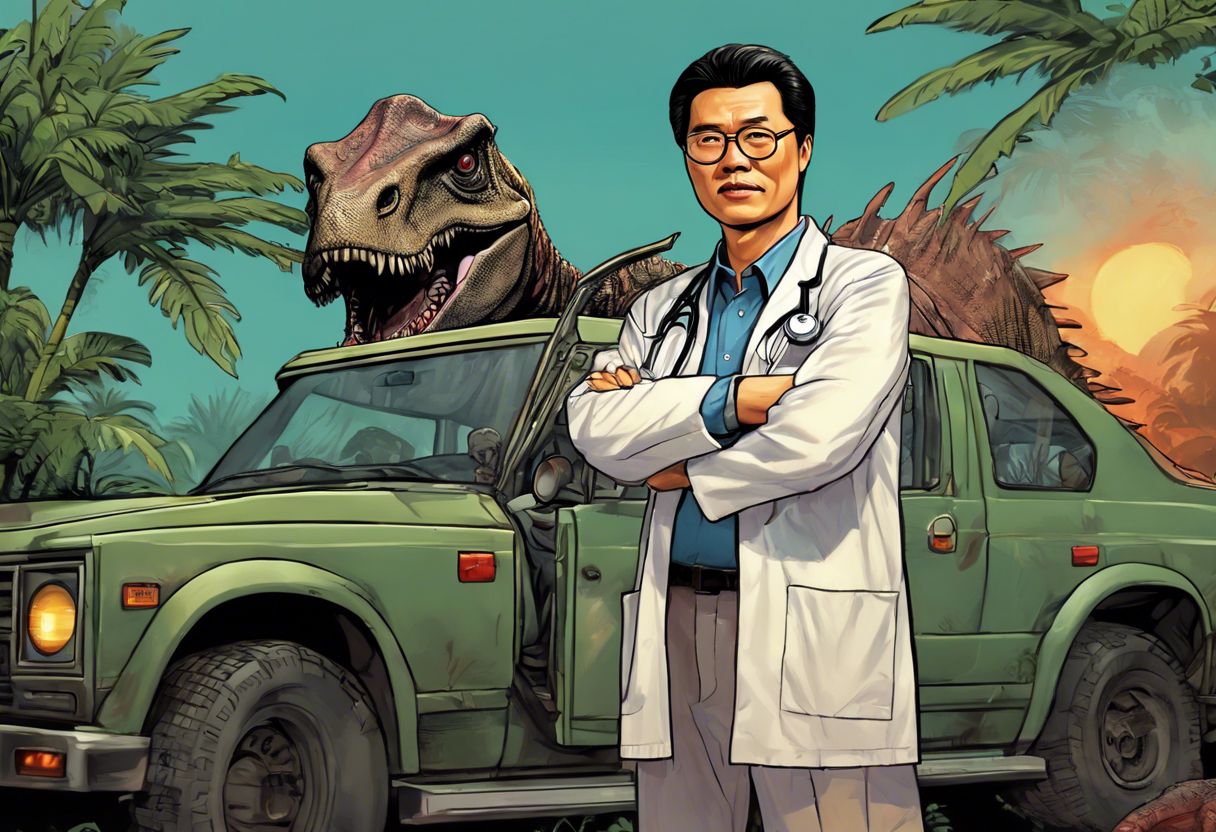Dr. Henry Wu: The Geneticist Behind Jurassic Park
Introduction
Dr. Henry Wu is a pivotal character in the Jurassic Park franchise, created by author Michael Crichton and introduced in his 1990 novel of the same name. Wu is the chief geneticist at Jurassic Park, a theme park featuring genetically engineered dinosaurs on the fictional island of Isla Nublar. Recruited by the park’s owner, John Hammond, Wu’s expertise in genetic engineering was crucial in bringing dinosaurs back from extinction for use as attractions [5].
Wu’s character is significant not only for his scientific contributions but also for the ethical and moral dilemmas his work embodies. His journey from a brilliant and idealistic scientist to a more complex and morally ambiguous figure is a central theme in the franchise. Portrayed by actor BD Wong in the film adaptations, Wu’s character has evolved significantly over the years, reflecting both the advancements in genetic engineering and the changing societal attitudes towards science and ethics.
Role in the Story
In the original novel and film adaptation of Jurassic Park, Dr. Henry Wu plays a key role in the narrative as the lead geneticist responsible for cloning the dinosaurs. He is part of the team that explains the cloning process to the visiting scientists, including paleontologist Alan Grant, paleobotanist Ellie Sattler, and chaos theorist Ian Malcolm. Wu’s tour highlights the scientific marvels of the park but also omits critical details that Hammond believes are unnecessary for the visitors to know [2].
During the Isla Nublar Incident, when the park’s security systems fail due to the actions of Dennis Nedry, Wu is involved in several key events. He helps Dr. Grant attempt to restart the power generator and warns Ellie Sattler about approaching Velociraptors. However, his involvement ends tragically when he is attacked and killed by a Velociraptor during the assault on the Safari Lodge [2].
In the film series, particularly in the Jurassic World trilogy, Wu’s role expands significantly. He survives the events of the first film and becomes a central figure in the creation of new, genetically modified dinosaurs, such as the Indominus Rex and the Indoraptor. Wu’s collaboration with InGen Security head Hoskins to create these dinosaurs as potential military weapons adds a layer of complexity to his character, highlighting his involvement in more sinister projects [3].
Character Analysis
Dr. Henry Wu’s personality and motivations are multifaceted and evolve over the course of the franchise. Initially, he is portrayed as a brilliant, idealistic, and somewhat smug geneticist who is proud of his achievements. Wu’s work is driven by a passion for science and a desire to push the boundaries of what is possible through genetic engineering. However, as the series progresses, his character becomes more nuanced, revealing a man trapped by the commercial and greedy forces surrounding him [5].
One of Wu’s significant flaws is his astounding ignorance about the biology of the animals he creates. Despite his brilliance in genetic engineering, he fails to fully understand the behavioral and biological implications of his work, leading to disastrous consequences. For example, his use of frog DNA in the cloning process allows the dinosaurs to change sex and breed, which he initially dismisses as impossible [1].
Wu’s relationships with other characters also highlight his complexities. His interactions with John Hammond reveal a tension between scientific ambition and ethical responsibility. While Hammond sees the dinosaurs as attractions, Wu begins to realize the deeper implications of his creations. His conversations with Dr. Malcolm and Dr. Grant further underscore his growing awareness of the dangers and unpredictabilities of his work [3].
Themes and Symbolism
Dr. Henry Wu embodies several key themes in the Jurassic Park franchise. One of the most prominent is the theme of scientific hubris versus nature. Wu’s ability to clone dinosaurs represents the pinnacle of human scientific achievement, but the chaos that ensues when these creatures escape highlights the limits of human control over nature. This theme is symbolized through the failure of the park’s security systems and the devastating consequences that follow [4].
Another theme is the ethical dilemma of playing God with genetic engineering. Wu’s work raises questions about the morality of creating life forms for human entertainment and the potential consequences of such actions. The use of patented genes and the inclusion of DNA from other animals to fill gaps in the dinosaurs’ genomes further complicate these ethical considerations [2].
Wu also symbolizes the tension between innovation and responsibility. His drive to innovate and push the boundaries of genetic engineering is contrasted with the need for caution and ethical oversight. This tension is particularly evident in his later work on the Indominus Rex and Indoraptor, where his ambition is clearly at odds with the safety and well-being of others [3].
Cultural Impact
Dr. Henry Wu has had a significant cultural impact since his introduction in the Jurassic Park novel and film. His character has been received with a mix of fascination and criticism by fans. The portrayal by BD Wong in the film adaptations added a layer of depth to the character, making him more relatable and complex.
Wu’s character has influenced popular culture, particularly in the realm of science fiction and genetic engineering. His work on cloning dinosaurs has become a cultural touchstone for discussions about the ethics of genetic engineering and the dangers of unchecked scientific progress.
In adaptations and spin-offs, Wu’s character has evolved to reflect changing societal attitudes towards science and ethics. His transformation from a background character in the original film to a central villain in the Jurassic World trilogy highlights the evolving narrative of the franchise and the growing complexity of his character [3].
Critical Reception
Critics and audiences have had varying interpretations of Dr. Henry Wu’s role over the years. Initially, his character was seen as a brilliant but somewhat one-dimensional scientist. However, as the franchise expanded, his complexity and depth became more apparent.
BD Wong’s portrayal of Wu has been praised for adding nuance to the character. Wong’s own reflections on the role highlight the challenges of portraying a character who evolves significantly over time. The actor noted that Wu’s journey from an idealistic scientist to a more morally ambiguous figure was a compelling aspect of the character’s development [5].
Some critics have argued that Wu’s transformation into a villain in the Jurassic World trilogy was a natural progression of his character, given his earlier flaws and the pressures he faced. Others have seen this transformation as a simplification of a once complex character, reducing him to a more stereotypical villainous role [3].
Legacy
Dr. Henry Wu’s enduring appeal lies in his multifaceted character and the themes he embodies. He represents the dual nature of scientific progress: the potential for groundbreaking innovation and the risk of catastrophic consequences.
Wu’s relevance in contemporary discussions about genetic engineering, ethics, and the responsibility of scientists is undeniable. His character serves as a cautionary tale about the dangers of unchecked ambition and the importance of ethical oversight in scientific research.
As a character archetype, Wu has inspired other works in science fiction and beyond, highlighting the complexities of scientific characters and the ethical dilemmas they face. His legacy continues to influence how we think about the intersection of science, ethics, and society.

